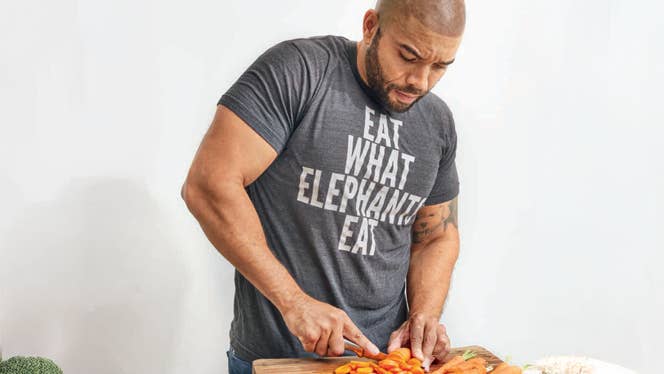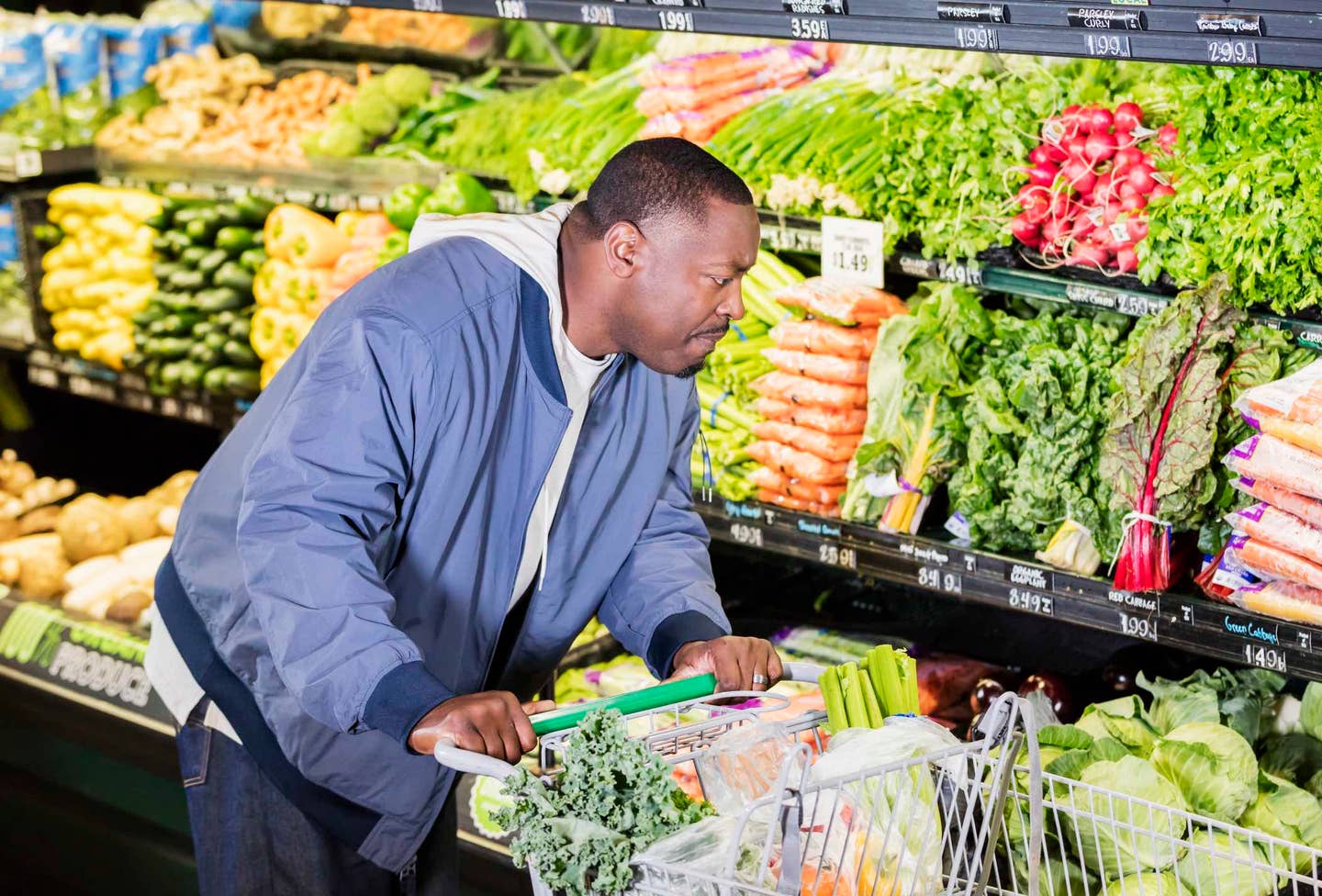Imagine running into a friend at the gym who was just finishing her aerobic workout. Sweaty and flushed, she downs a bottle of water and remarks, “Got to get my hydrogen!” While we may instinctively sense that there is something odd about that statement, in Western countries, and particularly the U.S., people make very similar comments on a regular basis. “Just getting my protein in!” someone will cheerfully report as they dig into General Tso’s chicken or crack open a hard-boiled egg. “I just make sure to eat lots of legumes,” a vegan will say in response to the question of how they get enough protein without eating animal products.
Protein is vital for human consumption, but in no way can its importance be separated from the context of the whole food it came from. What we need to be consuming is food – whole, plant-based food – because it provides the range of nutrients (protein included) that humans need to function in health.
That being said, I know you’re asking anyway, “How much protein do I really need?” For an individual adult, this is a minimum of about 4-5% of total calories per day on average, or 0.6g/kg body weight. How did we get this number? Scientists have measured people’s protein consumption and nitrogen balance and determined how much protein (as nitrogen) must be consumed to balance how much is routinely lost (the body is always replacing old protein). This estimate is considered the minimum daily requirement. Researchers will also take into consideration any symptoms that may arise with the different amounts of protein that people are consuming.
Because half of us need more protein than that average minimum, a safe number to shoot for is around 8-10% of total calories. At that point, almost everyone will be getting more than what what they need. Any more than 10% will likely be excessive and there is evidence that chronic disease rates increase at such high amounts, especially when including animal foods.
Conveniently, eating a varied whole-food, plant-based diet will naturally provide approximately 10% of protein from total calories without any special effort. In developed countries we have the privilege of access to fresh, good quality plant foods at all times of year, and the variety available provides more than enough protein in the diet.
Want to test it out on yourself? You can use one of various tools like SuperTracker to track the nutrient profile of your daily diet. If you are consuming varied, whole plant foods, you will easily meet the protein requirement.
Consider what I ate in one day: oatmeal with banana and 1 TB of maple syrup for breakfast, an apple, carrot, and crackers and hummus for snacks, whole wheat noodles with kale, tomato sauce and white beans for lunch, a big salad (4 cups) with carrots, tomato, avocado and balsamic vinegar, a stuffed pepper, and broccoli for dinner, and a baked apple for dessert. I ate a total of 1950 calories, 11% of which were from protein. More than enough! And not too hard either. I did all this without thinking about anything except making sure I remembered to bring my lunch to work.

Related News
Save 40% This WeekOn Forks Meal Planner

Forks Meal Planner takes the hard work out of making nutritious meals the whole family will enjoy.
SAVE $200 ON OUR ULTIMATE COURSE

Join our best-selling course at a new lower price!


